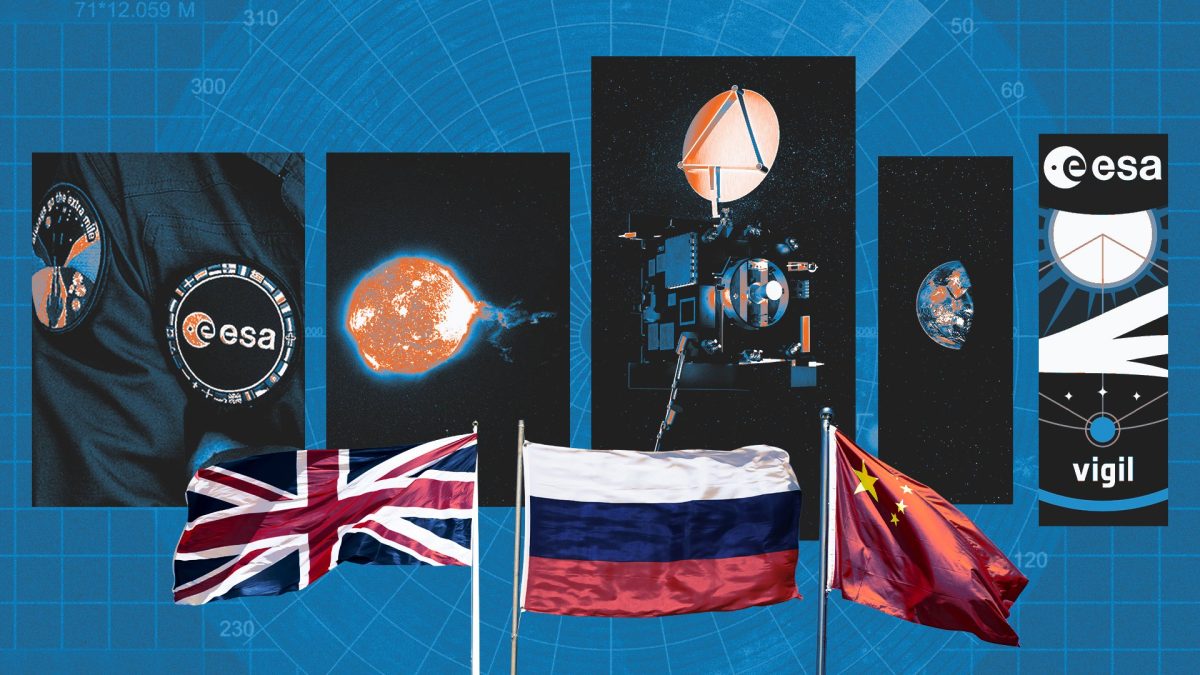
A New Era in Space Monitoring
The United Kingdom is taking a significant step forward in the realm of space monitoring with a £700m mission aimed at tracking extreme space weather. This initiative comes as concerns grow over the potential for hostile nations to exploit solar activity. The European Space Agency’s Vigil satellite will be the first to continuously monitor the Sun from a unique location in deep space, providing early warnings of incoming solar storms.
Solar flares and eruptions can send powerful bursts of energy that disrupt Earth's magnetic field, causing major disturbances in critical space infrastructure. Insurance firm Lloyds has estimated that an extreme solar event could lead to global chaos, affecting everything from grounded flights to silent phones and frozen financial networks. Such an event could cost up to $2.4 trillion (£1.7 trillion) from global GDP over five years.
The UK government estimates that losing just its own space assets would cost £1bn a day to the economy. Additionally, there are growing concerns that solar storms, which scientists predict will become more frequent and intense in the coming decades, could jam GPS and radar systems used in defense. This raises security concerns, as it is feared that countries like Russia and China might use knowledge of these solar storms to their advantage when radar systems are knocked out.
Preparing for Potential Threats
Paul Bate, chief executive of the UK Space Agency, emphasized the importance of preparing for such threats. He mentioned that the UK has a dedicated space command, similar to air and land commands, which focuses on protecting and defending the nation in space. Bate highlighted that some nations have shown the capability to act badly in space, citing an example where Russia destroyed one of its own satellites in 2021.
Solar storms can travel towards Earth at speeds of up to 3,000kph, leaving authorities as little as 12 hours to prepare. Currently, no military power is believed to have the capability to accurately predict when solar events could disrupt defense systems. However, it is thought that solar flares may have contributed to the sinking of a Russian warship during the conflict with Ukraine in 2022 by disabling its radar.
Nations including the US, China, and Russia are now in a race to better understand solar storms and how they could provide a military advantage. This has led to increased efforts among Western nations to prepare for more space conflict.
The Role of the Vigil Mission
Vigil will be positioned in an area of space known as “L5,” allowing it to effectively peer around the corner of the Sun and deliver 24/7 updates on solar activity back to Earth. While space remains governed by international law prohibiting the use of weapons of mass destruction, it is becoming increasingly “contested and congested.”
Bate noted that space is not immune to Earth’s geopolitics. The UK government’s Strategic Defence Review highlights the importance of space for defense and vice versa. The Vigil mission, expected to launch in 2031, is a UK-French collaboration costing around €800m (£700m).
Mitigating Risks and Ensuring Collaboration
Harshbir Sangha, a director at the UK Space Agency, explained that space weather poses a significant challenge. Extreme space weather could cause unwanted currents in power grids, damage or disruption to satellites, impacts on high altitude aircraft, and satellite navigation failures. The Vigil mission aims to mitigate these risks.
Currently, the information available is largely reliant on the US, but Vigil offers a completely different vantage point. The UK has invested around £160m into the mission, recognizing the importance of mitigating these risks.
Meganne Christian, one of Britain’s leading astronauts, believes space can remain “off limits” to international conflict but emphasizes the need for European nations to stay alert. She stressed the importance of international collaboration between industry and governments, highlighting that space should be a place of cooperation rather than competition.
In conclusion, the Vigil mission represents a significant step forward in understanding and mitigating the risks posed by solar storms. As nations race to gain a better understanding of these phenomena, the importance of collaboration and preparedness cannot be overstated.
